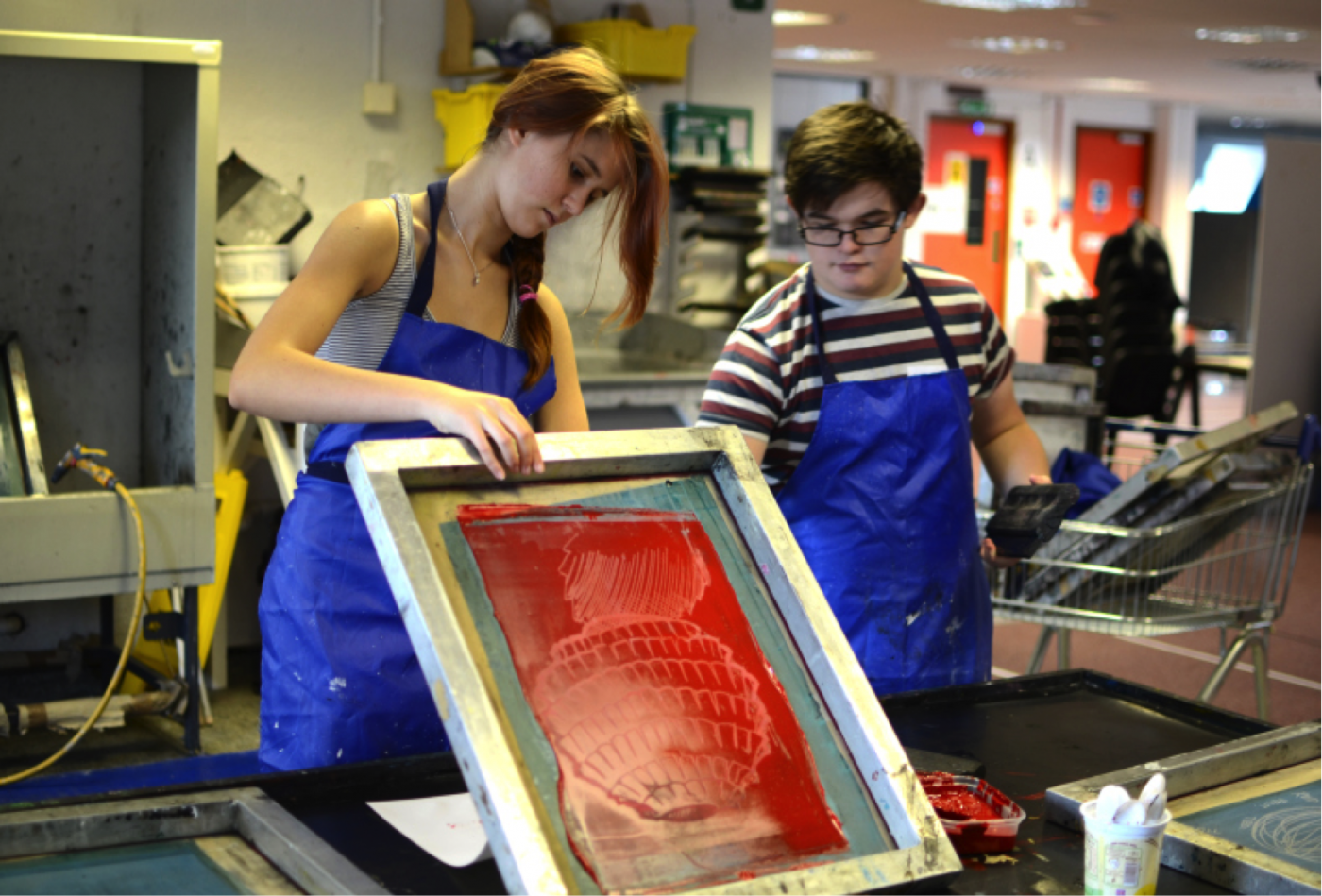Criw Celf is an Arts Council of Wales project bringing together more able and talented students in the visual arts – with students ranging from ages 9-18. This is part of a national initiative to nurture young artistic talent in Wales. Working closely with schools, Criw Celf seeks to develop pupil’s creative practice and knowledge of the Visual and Applied arts through a series of master classes.

Criw Celf is made up of different strands for each age group; Criw Celf Primary (school years 5-6), Criw Celf Secondary (school years 7-9), Portfolio (students studying at GCSE) and Raising the Bar (students studying at AS/A Level and FE).
I have been involved with Criw Celf for many years as an artist leading master-classes at all levels, at PEAK, Llantarnam Grange and Mission Gallery and, as Chair of Mission Gallery, I was also involved in establishing the Criw Celf West part of the scheme, and developing the relationship with Swansea College of Art, who offered support in the form of studio space and other facilities.
Red Ball and Raising the Bar
I used Red Ball as a project for Raising the Bar students over several years and presented outcomes to the annual Criw Celf conference in 2014.
Download conference paper: Red Ball and Raising the Bar
Red Ball is a personal project that stretches across the areas of my practice as an artist and teacher – linking rather than dividing what can often be conflicting activities, each begging for time and attention. It also blurs the lines between disciplines – lines that are now perhaps too heavily drawn in education. It is at it’s heart a part of my fine art practice and introduces students to the idea of participatory work – but it is mainly manifested through craft and design skills – so that it can, for example, be used to introduce a range of textiles processes, paper manipulation, CAD or casting.
Working with Raising the Bar students has taught me much – connecting with the students who may be coming to Foundation and those who will be going off to study all sorts of subjects is very important for the Foundation course. Our need to engage with education from school to post-graduate is becoming ever more evident. The Foundation course is a crossroads for students of all ages and at all stages of education and insights into their journeys so far are important. So as ever the learning is mutual, shared and ongoing.








